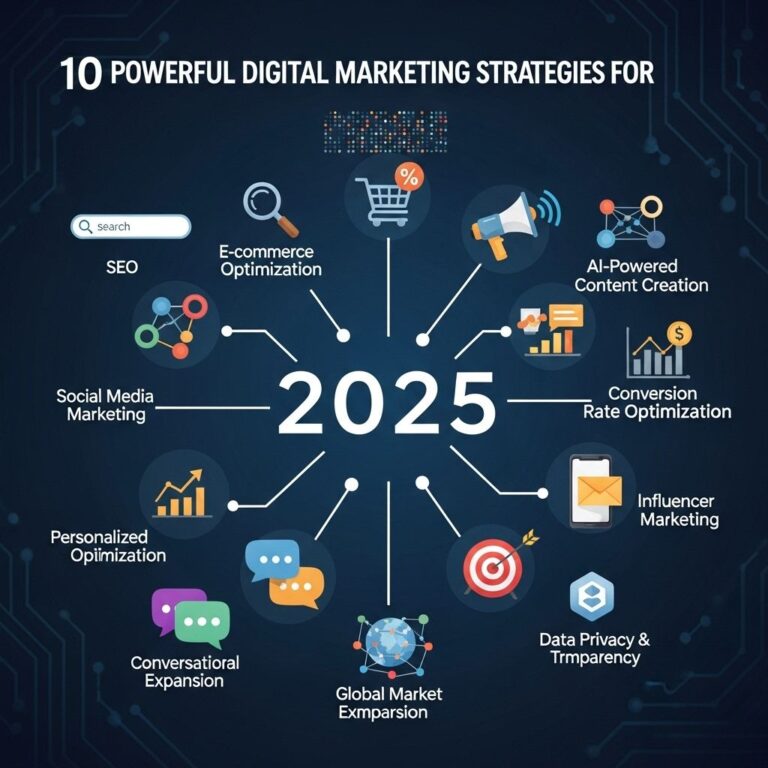Table of Contents
The Evolution of Digital Marketing
The digital marketing landscape is continuously evolving, bringing with it new technologies and trends that marketers must navigate to stay competitive. Understanding these shifts is crucial for developing strategies that not only reach but also engage target audiences effectively. As we delve into the world of digital marketing, we will explore both foundational techniques and emerging trends that promise to redefine successful marketing in the digital age.
Modern marketers must harness the power of data, personalization, and an omnichannel presence to make the most significant impact. This requires a blend of tried-and-true methods and innovative approaches that embrace change and flexibility. The rapid evolution in technology, along with changing consumer privacy expectations, creates both new opportunities and challenges for marketers aiming to maintain relevance and effectiveness in their campaigns.
Key Strategies for Maximum Impact
Navigating the digital marketing ecosystem demands a strategic focus on several key areas:
- Data-Driven Decisions: Leveraging analytics to guide marketing efforts and optimize performance metrics. By diving deep into data, marketers can identify trends, recognize customer needs, and craft strategies that directly address these insights.
- Personalization: Crafting tailored experiences to meet the unique needs of each customer, enhancing engagement and loyalty. Today’s consumers expect brands to cater to their individual preferences, making personalization not just an advantage but a necessity.
- SEO and Content Marketing: Creating high-quality content that ranks well on search engines and provides value to the audience. This includes understanding keyword strategies, developing engaging content formats, and maintaining a consistent brand voice that resonates with readers.
By prioritizing these areas, marketers can build robust strategies that drive growth and visibility in a crowded digital space. Implementing these techniques not only boosts organic traffic but also strengthens brand credibility and trust among consumers.
Embracing Emerging Technologies
In the quest for maximum impact, cutting-edge technologies offer exciting opportunities:
- Artificial Intelligence: Utilizing AI to automate processes, deliver personalized experiences, and analyze data at scale. AI technology aids in predictive analytics, customer segmentation, and creating dynamic content that aligns with user behavior.
- Video Marketing: Capitalizing on the popularity of video content across social platforms to engage users effectively. From live streaming to short-form videos on platforms like TikTok, video marketing is a versatile tool for storytelling and audience interaction.
- Voice Search Optimization: Adapting SEO strategies to cater to the increasing use of voice-activated search devices. Optimizing for voice search involves understanding natural language processing and focusing on conversational keywords.
Staying ahead of these technological advancements shields brands from obsolescence and positions them as leaders in the industry. Embracing such innovations ensures not only survival but also growth, as brands that are at the forefront of technology tend to capture market attention faster and more efficiently.
Building a Strong Brand Presence
In digital marketing, a cohesive brand identity is paramount. This transcends mere aesthetics to encompass the emotional connection a brand establishes with its audience. Successful marketers invest in their branding efforts, ensuring consistent messaging across all platforms and channels. A strong brand identity is not just about logos or colors; it is about the experience and values that customers associate with your business.
When a strong brand presence is combined with strategic campaigns particularly tailored for digital natives, the results can be transformative, marked by increased customer loyalty and market share. This involves not only understanding your audience’s preferences but also aligning your brand’s mission and values with their expectations.
Harnessing the Power of Social Media
Social media remains a powerhouse for digital marketing, offering platforms for brands to connect with audiences on a personal level. Whether it’s through engaging content, community management, or creative advertising, social media provides endless possibilities for interaction and brand promotion.
- Choosing the Right Platforms: Not every platform is right for every brand. Determine where your target audience spends their time and focus efforts on those channels for maximum engagement.
- Content that Resonates: Develop content that speaks to the interests and needs of your audience. Utilize storytelling, visuals, and trends to create compelling posts that encourage interaction.
- Influencer Collaborations: Partnering with influencers can extend your brand’s reach and provide credible endorsements. Influencers bring authenticity and can help tap into niche markets effectively.
Email Marketing: A Tried-and-True Channel
Email marketing continues to be a cost-effective means of reaching out to customers with personalized messages. By segmenting email lists and tailoring content to various audience segments, brands can enhance open rates, click-through rates, and overall effectiveness.
- Segmentation for Relevance: Break down your email list into meaningful categories based on demographics, purchase history, and engagement levels for more targeted campaigns.
- Automation for Efficiency: Use automation to send timely, relevant emails that nurture leads and encourage conversions without requiring extensive manual intervention.
- Compelling Content: Craft emails with engaging content, clear calls to action, and visually appealing designs to capture attention and prompt action.
FAQ
What are the emerging digital marketing trends to watch in 2024?
In 2024, anticipate a rise in AI-driven marketing strategies, an emphasis on immersive content like AR and VR, and increased investment in influencer partnerships to leverage social proof effectively. These trends signify a deeper integration of technology with marketing efforts, enhancing user experiences through more innovative and interactive mediums.
How important is personalization in digital marketing?
Personalization is crucial as it enhances user experience, drives engagement, and fosters loyalty by addressing individual customer needs and preferences. Brands that excel in personalization often see increased user satisfaction and brand advocacy, as consumers feel understood and valued.
Why is data analytics so vital for digital marketing strategies?
Data analytics provides actionable insights, enabling marketers to track performance, understand consumer behavior, and make informed decisions to refine their strategies. By analyzing data patterns, brands can predict trends, personalize marketing efforts, and ultimately enhance return on investment.









